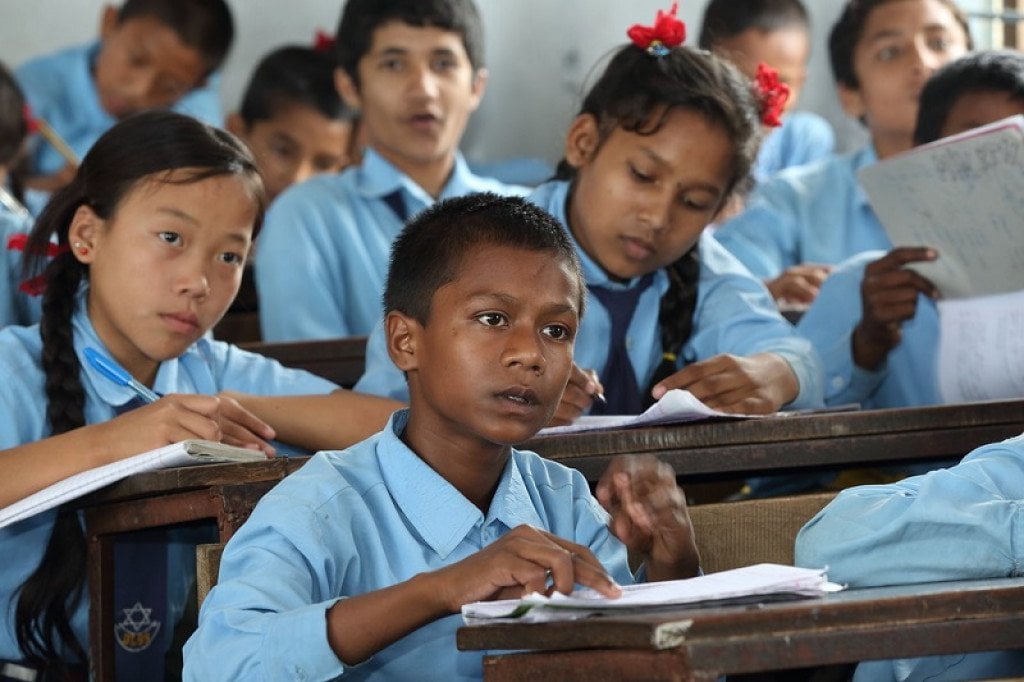Nepal's inimical education system: Leading the country sans progress

Chinese philosopher Confucius said “If your plan is for one year, plant rice. If your plan is for ten years, plant trees. If your plan is for 100 years, educate humanity.” This saying emphasizes the importance of long-term planning and education investment. A wise ruler will focus on creating sustainable policies and investing in their people’s education, rather than short-term gains. Last week, the Nepal Government presented the policies and programs for the fiscal year 2080/081. The government’s promises are similar to that of the last year and have little chance of fulfillment. The government’s annual policy and program states that it will restructure universities and colleges by merging and/or splitting institutions as necessary. This parliament session was expected to pass the Federal Education Act, which has already been delayed, to delegate power to provinces and local-level governments.
The present education system has several problems here outdated concept of education and the human resources cultivation and training model, students are weak in innovation and practice. We have irrational distribution of resources, irrational and irrelevant educational structure, and layout, and unbalanced development of the urban, rural, and regional areas. There is a great disparity between supply and demand. Some Himalayan and hilly regions have difficulty for students to commute to school due to weather geographical difficulties as well inadequate schools and absence of transportation. We have an unsound education system as well as inefficient policy and framework, elitism on education, privatization and classical liberalism on education. In recent years, we ensured that people could go to school, but we have not ensured that people can go to good schools. There was a time when people believed that they could change their fate by studying hard. However, nowadays students increasingly believe that only power and money rather than their own efforts can change their fate. This prevailing attitude has led to a new idea that study is useless. Those who are Undergraduates, or Postgraduates are unemployed, and their certificates are not being sold in the market. And many of them are forced to do blue color jobs in the Gulf countries. Many of the problems facing students in higher education have their roots in basic education. It’s necessary to reform the entire education system. The government’s annual policies and programs state that it will restructure universities and colleges. However, unless and until top-down reform is not combined with bottom-top reform it cannot be an effective reform. There is a great shortage of quality education. The education system, once considered a beacon of hope for the nation’s future, now seems to be leading youth down a path with no light at the end of the tunnel.
The education system should always be foresight and visionary and should be capable of problem-solving and practical than theoretical because it serves for the next hundred years. It should drive countries towards economic and social development. People have high expectations about education reform and development in Nepal; they are expecting to build a fair, just and harmonious society through educational reform. Education is the grasp of the future so the state should prioritize education and should prioritize “resource allocation for education.” We must prioritize the strategic development of education; we must have to eliminate the urban–rural gap in compulsory education and should realization of balanced development of education. We must adopt the core principle that all kinds of discrimination should be eliminated and should uplift all kinds of socially and economically backward and minoritized groups. For that, we have to allocate resources in a rational and balanced manner. We must adopt different strategies to ensure social justice and equality.
Unfortunately, in Nepal, mushrooming private schools after the democratic change in 90's neoliberalism and privatization policy of the state has made education a private good rather than a public good. The private owners and founders focused on making financial profits by making teachers as producers and students/parents consumers of this private good. The key to their dominance over community schools was so-called English-medium instruction. Schools that offer compulsory English language are seen as offering better life chances for those who excel in that language. A study conducted in different schools in Kathmandu has also highlighted the perceived role of English for a greater chance of success. In their study on the privatization of education in Nepal, concluded that the use of English in schools is one of the important factors in their popularity. English proficiency is simultaneously seen as ‘the key to a better future, an index of social capital, and a ticket out of Nepal.’ Therefore, the socially and economically advantaged groups increasingly prefer to send their children to private schools. Though the education statistics show gradual progress in education, the disparities in education continue in different forms. As middle-class families continue sending their children to private schools, government schools are deserted. Ironically, persons employed as government schoolteachers also send their children to private schools.
Nepal has become a large student-exporting country. This is because of getting quality education resources and youth choose to study abroad for higher education. This leads to severe quality and brain drain problems in the country. In the Fiscal Year 2070/71, a total of 28,126 students took permits to study abroad. This scenario is devastatingly increasing every year. Over one lakh (1,02,504) students were granted permits to study abroad in FY 2078/79. Similarly, last Fiscal Year (2079/80) up to Falgun, 79,437 students chose to study abroad.
Private school charge fees up to 30/40 thousand rupees per month although the government had issued guidelines defining fee rates according to the categories of corporate schools: A, B, C and D. This also proves that the government itself is promoting elitism to education. The corporate schools raise money from students on different headings and there is no proper monitoring of them. Regulation of private schools is a necessity for systematic operations of their school, and they must be stopped by governments to run the profit motive. There should be provisions that part of their earning should be spent on the students' welfare and progress. At the same time, the exploitation of teachers should be eliminated by providing appropriate salaries. The federal government should enact a new education act. Which should be comprehensive and delegates the authority for formulating rules, regulations, control, supervision, and implementation mechanisms to the provincial governments and local levels.
It’s of great importance to expand quality education and everyone should be treated equally in education from the begging which is an important part of social equality. The right to be educated is a basic human right. Those who lack the opportunity to be quality educated are those who lack a future. The government is responsible for maintaining equality, but it’s dominated by the macro-political and economic system it’s impossible to achieve success when the reform of the social system and mechanism lags behind. Therefore, education reform should be considered against comprehensive background. Traditional approaches of gradual reform can’t meet today’s needs. It’s of great importance to the new industrial revolution, now technology adopts artificial intelligence (AI) and automation. AI and renewable energy laid the strong foundations of the new industrial revolution. In the age of digitalization, the speed of global knowledge and technology innovation has accelerated. That’s why we won’t be able to achieve economic growth without adopting the new strategy of fostering the development of science, technology and education. It is indeed the purpose of science, technology, renewable energy, artificial intelligence and digitalization to play an important role in the development of society and the economy. A comprehensive reform of education policy is essential to solving various problems in the education system. The reform should be research-based, practical, innovative and long-term oriented to promote the country's prosperity. Otherwise, the country will face a dead end with severe consequences.
References:
• National education system in Nepal: between the ‘local’ and the ‘global’ ResearchGate / by Uma Pradhan
• Report of the Nepal national education commission.
• Education policy and reform in China
• Nepali private schools and tolerated illegality: A Foucauldian analysis of the privatization of education in Nepal, Chandra Sharma Poudyal, Cornell Institute of Business & Technology, New Zealand
• Policy and Programmes of 2080/81
• Newspaper articles as well as personal opinions and experiences

_gPx2AqA2jl.jpg)


Leave Comment